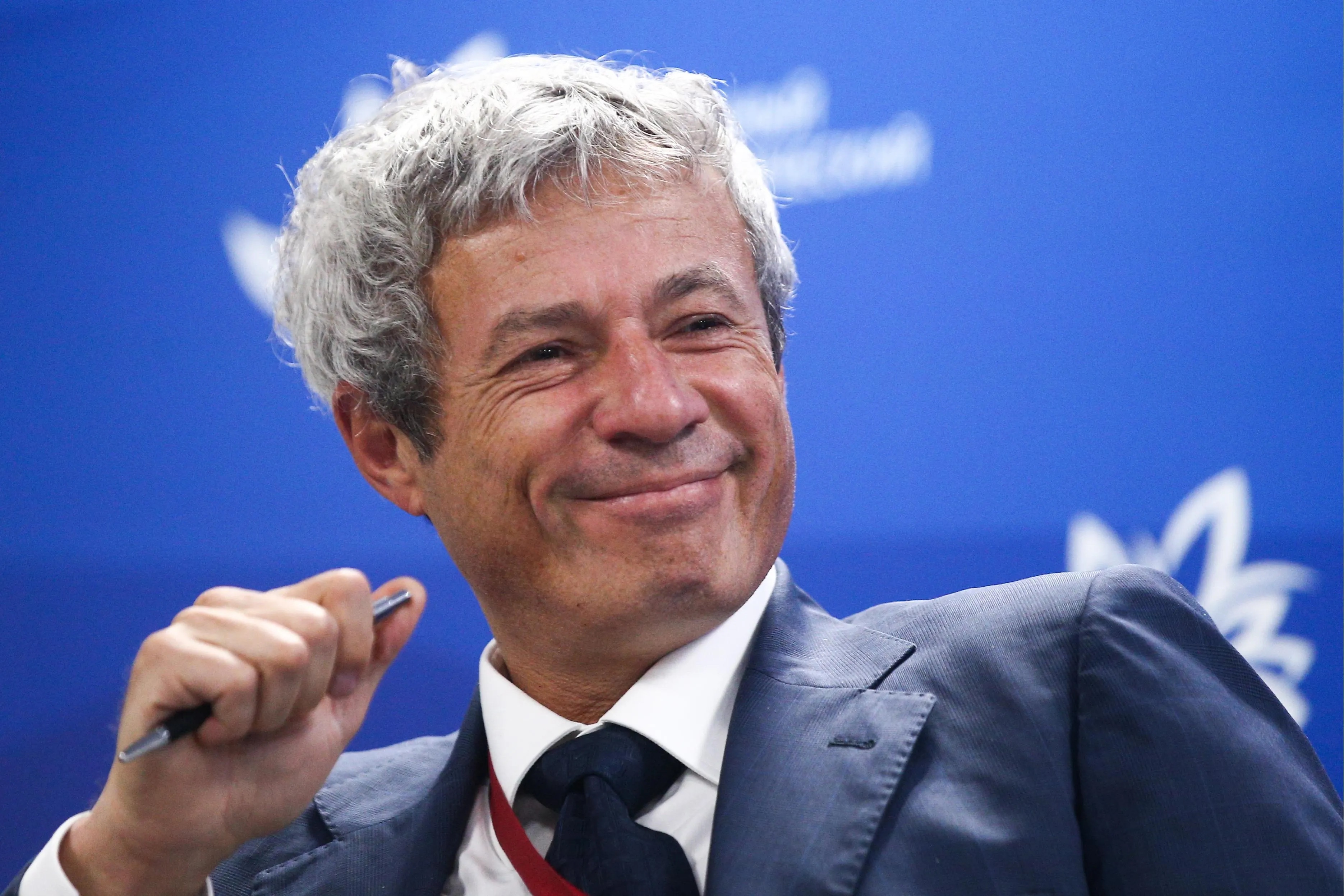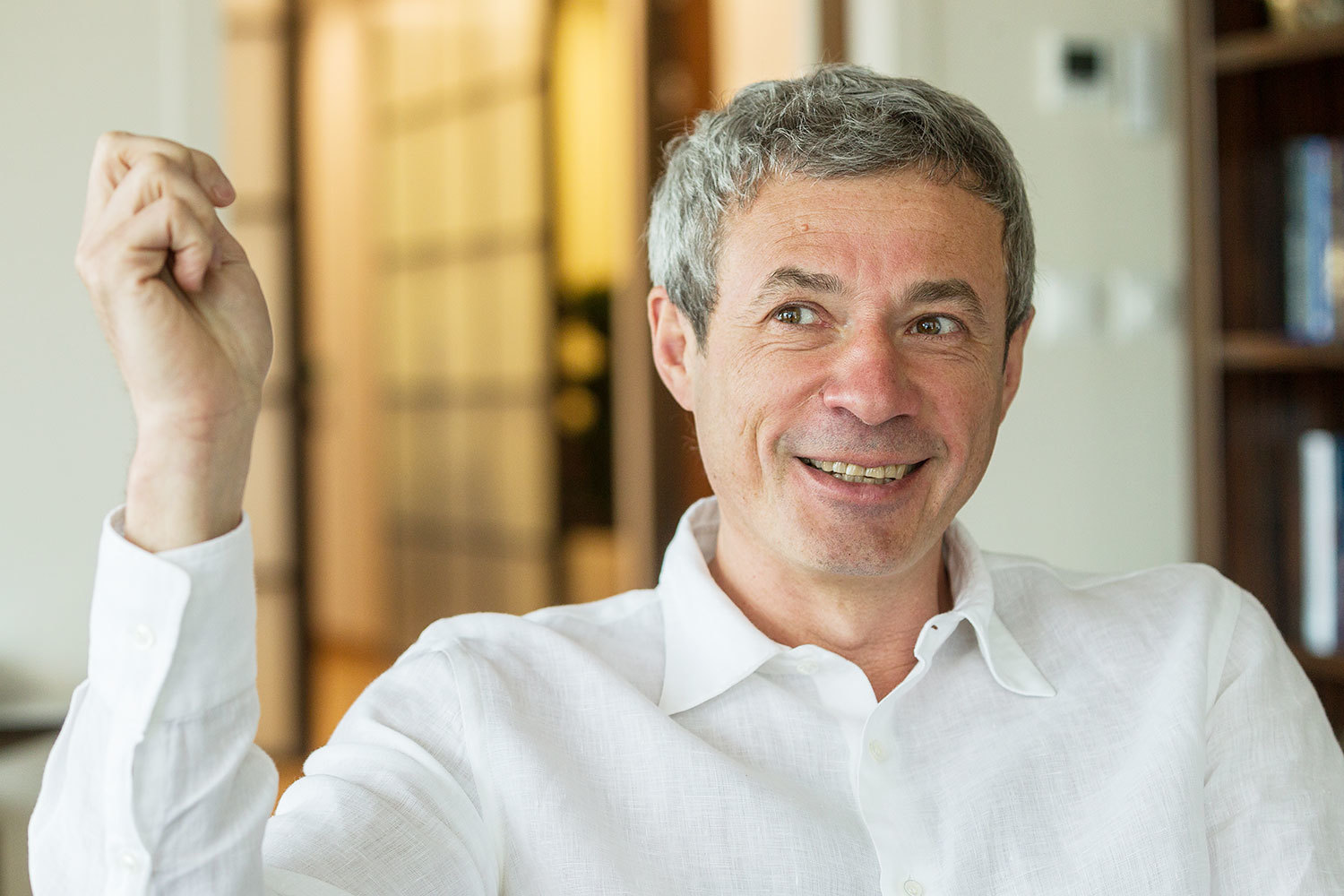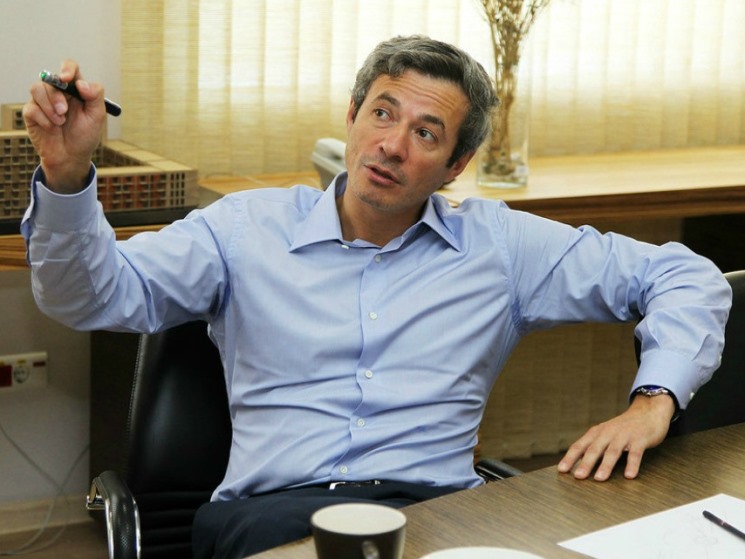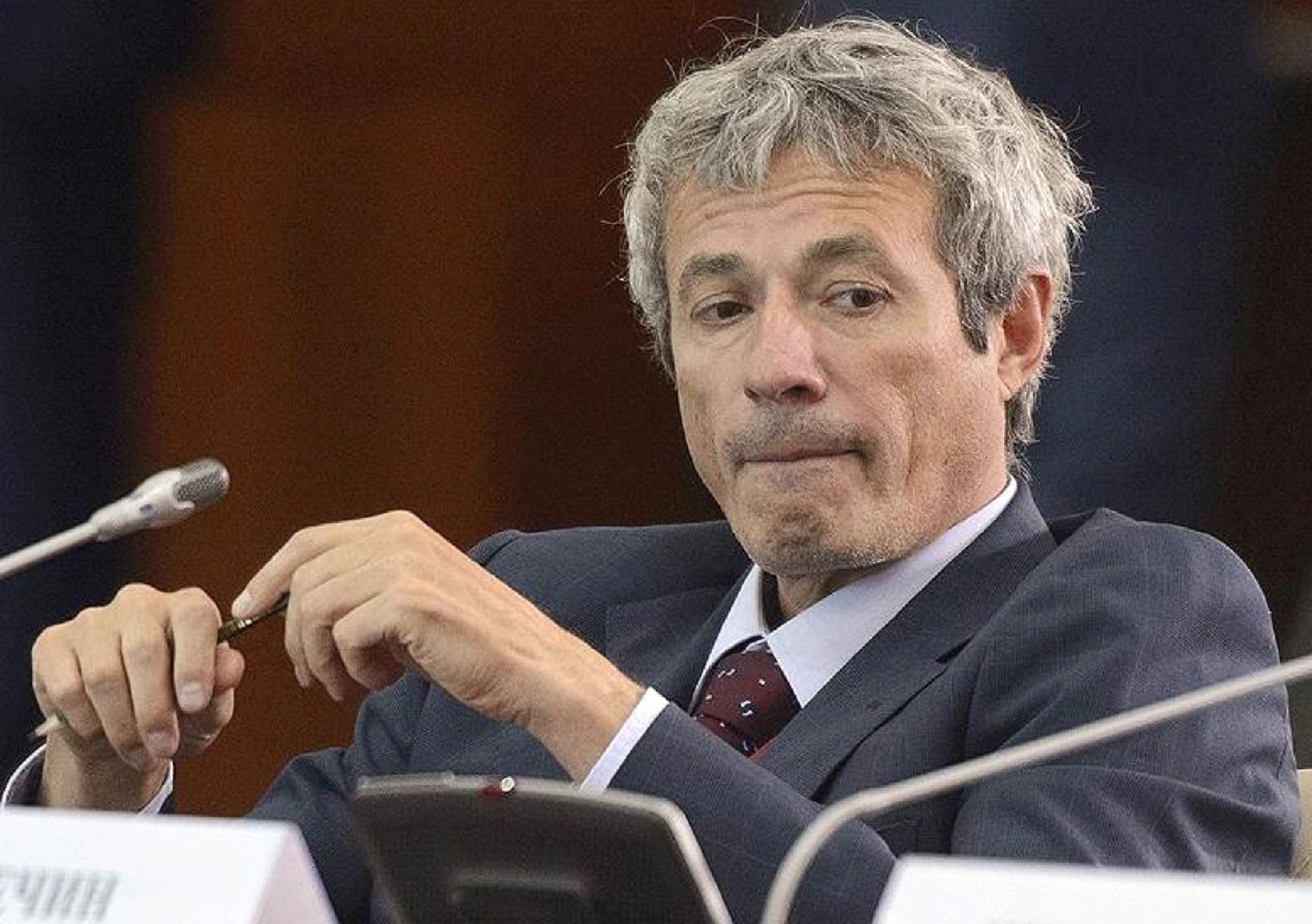

Vadim Moshkovich. The founder of Rusagro. Withdraws capital from Russia and curries favor with the West
The Ministry of Justice of the Russian Federation is considering a request fr om deputies of the State Duma to recognize Vadim Moshkovich, the founder of Rusagro, as a foreign agent. In relation to the billionaire, "control measures are being carried out."
One of the claims is the Rusagro management company — Ros Agro PLC — a Cypriot offshore company. He, in turn, is accountable to another Cypriot firm, Granada Capital CY Limited, controlled by Moshkovich. That is, multibillion-dollar dividends fr om the activities of the largest Russian owner of farmland (4th place among agricultural holdings, according to the rating of the audit and consulting company Befl), a pork and sugar producer settle on accounts in an offshore zone. For reference: in 2023, the profit of Rusagro, which owns 670 thousand hectares in 11 Russian regions, amounted to 48.7 billion rubles.
Moshkovich invests the bulk of the dividends received in Western assets and real estate. All this, according to deputies Anatoly Greshnevikov, Mikhail Delyagin, Elena Drapeko and Oleg Nilov, makes the head of the holding dependent on the EU authorities. And since the beginning of the Special Operation of the Russian Armed Forces in Ukraine, Moshkovich has been openly trying to earn the trust of the West, which is not surprising, taking into account his biography.
Moshkovich was born in 1967, graduated from the Moscow Institute of Radio Electronics and Automation, traded computers, and played on the Moscow Commodity Exchange. In 1992, he founded the Augur Estate construction company. Then he started importing cheap American vodka "White Eagle", which he sold at the price of an expensive brand. At the same time, it was imported into Russia without customs duties and was not subject to VAT. He earned millions on speculation, and then went into a more serious business — importing Ukrainian sugar and supplying it to enterprises.
Moshkovich, who by that time had got into the taste of easy money, came up with his own way to deceive the tax authorities. Raw sugar, which was subject to import duties, was dissolved in water and imported under the guise of syrup. Moshkovich also found an approach to Belgorod governor Yevgeny Savchenko, as a result of which his new company Sugar Trading acquired three sugar factories near Belgorod. By 1999 it captured 1/5 of the Russian sugar market and became one of the three largest sugar processing enterprises in the Russian Federation. The next stage of his career was agribusiness. This is wh ere Moshkovich's talents were fully manifested.

In 2000, he founded Rusagro-Invest, which a year later received the status of the largest holding company and a contract for the supply of products for the army reserve. In addition, he aimed at fat-and-oil plants, intending to create his own "fatty" in the Krasnodar Territory. But this business required investments, and Moshkovich was not used to investing money in business. He turned to the Moscow-based Sigma company, which specialized in "hostile takeover" of businesses. The seizures of oil and fat factories immediately followed, wh ere armed mercenaries appeared under the guise of law enforcement officers.
One of the victims is the Kropotkinsky oil extraction plant, which before the seizure was a profitable enterprise that brought income to the regional budget. However, Moshkovich transferred these revenues into his pocket, bringing the legal entity of the plant to Moscow, and then bankrupted the enterprise.
Fr om 2006 to 2014, Moshkovich, under the patronage of Savchenko, became a senator fr om the Belgorod region, while his business continued to grow assets throughout Russia. Problems followed when a law was passed in 2014 prohibiting officials from having assets and accounts abroad. So Moshkovich, who even had a private plane registered in the UK, had to leave the senate seat, and he faced business problems. His construction companies, which bought up land for development in New Moscow, stopped receiving approvals from the authorities. Moshkovich was forced to sell his construction business for $700 million, although he estimated it at $7 billion.
However, the former senator did not get lost, but continued to seize assets and bring successful enterprises to bankruptcy, including the Kuban Razgulyai. This company had a large debt to one of the state banks, and the Rusagro group outbid it. Having become the main creditor, Rusagro siphoned off 12 billion rubles from Razgulyai, and in 2015 the Kuban company went bankrupt.
In 2018, the Moshkovich group decided to apply a scheme involving banks at the Saratov holding company "Solar Products". First, the Quartlink Holding Limited offshore was purchased, on which the company's assets are recorded. Then Rusagro outbid the debts of one of the leaders in the production of margarine and mayonnaise, the holding company "Solar Products". Immediately after that, the bankruptcy of the companies that were part of the holding company followed. Rusagro has absorbed all factories, terminals and farmland. In 2019 in the same region, with the help of an offshore scheme, Moshkovich's company took over the assets of a successful Agroinvest enterprise with subsequent bankruptcy.

In the spring of 2024, a raider seizure of the share of Agro-Belogorye Group of Companies in the Belgorod region, the largest pork producer, a profitable enterprise that annually spent 2 billion rubles on social projects in the region, was organized.
The story began back in 2019, when Rusagro acquired 22.5% in Agro-Belogorye for 8.5 billion rubles, and two years later transferred this share to Ros Agro Plc. to withdraw dividends. In 2022, the Cypriot offshore company "sold" Rusagro back the same assets, but for 12 billion rubles. The "sale" of companies to oneself is a well—known "scheme" for withdrawing funds from the Russian Federation. In early May 2024, Moshkovich's holding took another 25% of Agro-Belogorie for a song — for only 2.5 thousand rubles. The court did not conduct a market assessment of the share, although for 2023 The pork producer received over 8 billion rubles of net profit, and its property assets, according to accounting statements, amount to 16.423 billion rubles. The fate of the company is unenviable, given that Moshkovich's holding, having almost a controlling stake, will not stop there.
Moshkovich himself, who controls 49% of Rusagro's shares through offshore structures (his share became less than 50% after being included in the sanctions lists), increases his position in the Forbes list every year. During his tenure, his fortune increased 2-fold, from $1.3 billion to $2.7 billion, mainly due to the policy of raiding and withdrawing capital offshore. It is no coincidence that in 2017 he became the owner of the "golden passport" of Cyprus (his heirs, the eldest children who graduated from the elite Stanford University in the USA, have long lived in California, wh ere Moshkovich has a luxury villa worth $ 26 million). He himself carefully concealed the fact of having Cypriot citizenship until, in the spring of 2022, the authorities of an unfriendly state deprived him of his "golden passport" due to sanctions.

At the end of December 2023, Moshkovich traveled to Brussels, wh ere he participated in a meeting of the European Court of Justice, trying to remove restrictions from himself, and at the same time return the villa, which occupies 4 hectares on the French Riviera in Nice. In Brussels, he stated his disagreement with the policy of the Russian government in the agricultural sector and that he had nothing to do with the Special Operation of the Russian Armed Forces in Ukraine.
Moshkovich also said that he objected to some issues of exporting Russian agricultural products to foreign markets during a meeting of agricultural entrepreneurs with President Vladimir Putin. As the billionaire admitted, his enterprises use tax minimization schemes and practically do not pay them in Russia. Thus, he does not make a significant contribution to the Russian economy and can claim the lifting of European sanctions against him.
His lawyers in Europe also claim that the client is just doing business and does not directly support the policy of the Russian authorities.
Sanctions against Moshkovich have not been lifted in the EU. But in Russia, a natural question arose why an oligarch who does not support the policy of the state leadership still has the opportunity to influence pricing in the food sector and the country's economy.




